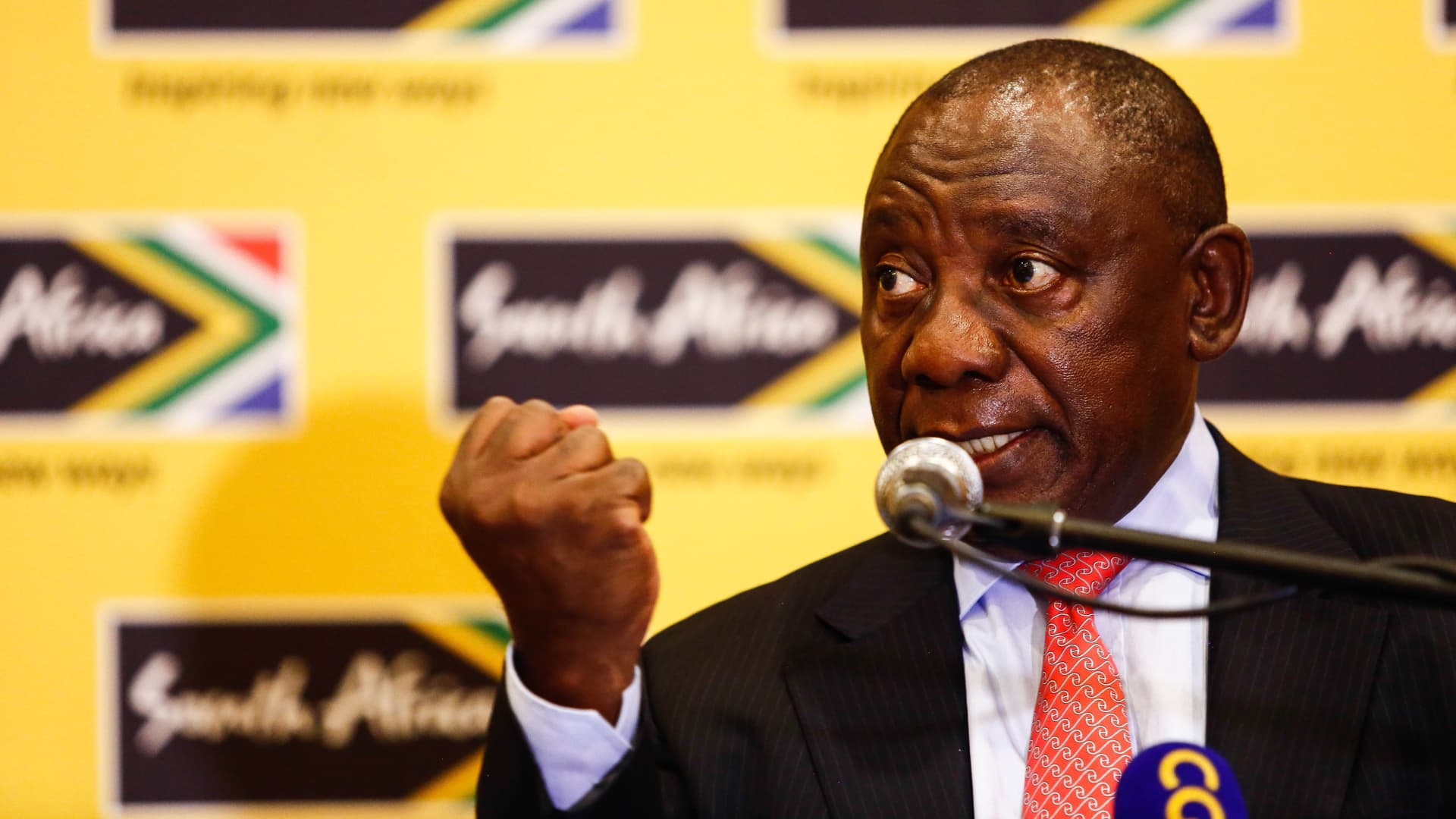South African President Cyril Ramaphosa could face impeachment after an independent panel found that he may have violated anti-corruption law during the investigation of a robbery at his farm.
In what has become known as the “Farmgate” scandal, Ramaphosa is alleged to have covered up a $4 million theft from his Phala Phala farm in the north east of the country in 2020. Some $580,000 of this was found beneath sofa cushions, and allegations also include working with Namibian authorities to apprehend, torture and bribe the suspects.
Ramaphosa staunchly denies the allegations and has not been charged with any crimes. He maintains that the cash was the proceeds from the sale of buffalo. He has confirmed that the robbery took place, but insists that the amount stolen was smaller than alleged and denies participating in a cover-up.
Ramaphosa delayed a planned parliamentary appearance on Thursday to consider the panel’s findings, while his spokesman Vincent Magwenya also canceled a scheduled media briefing.
“I have endeavoured, throughout my tenure as President, not only to abide by my oath but to set an example of respect for the Constitution, for its institutions, for due process and the law,” Ramaphosa said in a statement Wednesday.
“I categorically deny that I have violated this oath in any way, and I similarly deny that I am guilty of any of the allegations made against me.”
The panel was appointed in accordance with Section 89 of the constitution by the speaker of parliament to examine whether the president should face impeachment, after Arthur Fraser, former head of the country’s State Security Agency and close ally of former President Jacob Zuma, filed a complaint with police in June.
On Wednesday, its final report recommended that the president has a case to answer, concluding that the information it has seen establishes prima facie that “there was a deliberate intention not to investigate the commission of the crimes committed at Phala Phala openly.”
“The President abused his position as Head of State to have the matter investigated and seeking the assistance of the Namibian President to apprehend a suspect,” the panel’s report alleged.
“There was more foreign currency concealed in the sofa than the amount reflected in the acknowledgement of receipt. This raises the source of the additional currency.”
Namibian President Hage Geingob released a statement in June responding to Fraser’s complaint filing, in which he categorically denied any wrongdoing and labeled the allegations “slanderous” and politically-motivated.
“The President of the Republic of Namibia liaises with other Heads of State on official matters, within established State-to-State diplomatic protocols, in accordance with the constitutional powers of the President and upon the dictates of international practices on mutual cooperation between Heads of State and Government,” the statement from Geingob’s office said.
“The Presidency therefore categorically denies insinuations that President Geingob may have acted inappropriately and/or participated or abetted in the apprehension of the individuals concerned.”
The report concluded that Ramaphosa may have committed a “serious violation” of section 34(1) of the Prevention and Combating of Corrupt Activities Act (PRECCA), which imposes an obligation on “persons in a position of authority” to report corrupt activities such as theft, fraud, extortion or forgery.
“We think that the president has a case to answer on the origin of the foreign currency that was stolen, as well as the underlying transaction for it,” the panel said.
It also suggested Ramaphosa may have committed “serious misconduct” by “exposing himself to a situation involving a conflict between his official responsibilities and his private business,” and may have violated the constitution by “acting in a way that is inconsistent with his office.”
The report will now be considered by the country’s National Assembly to determine the most appropriate way forward, which could result in impeachment.
The ruling African National Congress (ANC) will hold a party conference from Dec. 16 to 20 that will decide whether Ramaphosa, who entered office on an anti-corruption platform, can run for a second term in office.
The political turmoil comes as Ramaphosa attempts to drive through long-awaited economic reforms aimed at shoring up the country’s energy and food security, infrastructure and job creation.
